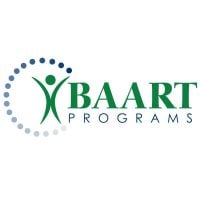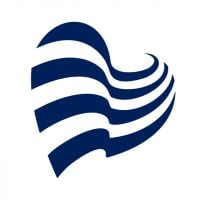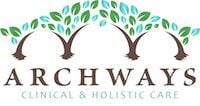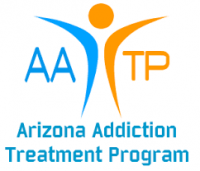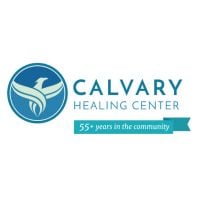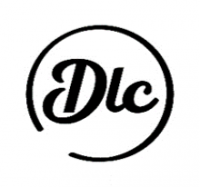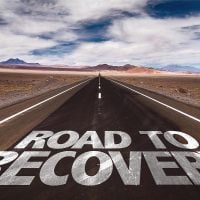Oasis Behavioral Health Hospital
Drug Rehab Center in Chandler, Arizona
Oasis Behavioral Health Hospital in Chandler, Arizona offers evidence-based treatment for addiction and mental health, including traditional and holistic therapies, 24/7 care, detoxification, inpatient and outpatient treatment programs, family therapy, and continuing care.
About Oasis Behavioral Health Hospital in Arizona
Oasis Behavioral Health Hospital is an inpatient hospital located in Chandler, Arizona. This hospital specializes in the treatment of addiction and mental health services, such as depression and anxiety treatment, among others. It utilizes an evidence-based approach that combines traditional treatment methods with holistic therapies, such as yoga and meditation. At Oasis Behavioral Health Hospital, qualified medical professionals provide 24/7 care, allowing for an individualized approach tailored to the patient's needs.
Oasis Behavioral Health Hospital offers a variety of services to help individuals struggling with addiction and substance abuse. It provides detoxification and withdrawal management, as well as inpatient and outpatient treatment programs. During treatment, individuals may receive assessment and evaluation, medication-assisted treatment, individual therapy, group therapy, recreational activities, and relapse prevention. Additionally, Oasis Behavioral Health Hospital provides family therapy, so family members can be part of their loved one's recovery journey.
Oasis Behavioral Health Hospital is accredited by The Joint Commission and The Commission on Accreditation of Rehabilitation Facilities. It has also been awarded the Quality of Care Services for both Adult & Adolescent Programs from The Joint Commission in 2020. Oasis Behavioral Health Hospital also provides educational programs for family members and continuing care for patients after discharge. These services, along with their qualified medical staff and evidence-based approach, make Oasis Behavioral Health Hospital an ideal choice for individuals seeking help for addiction and substance abuse.
Genders
Ages
Modality
Additional
Accreditations
State License
SAMHSA
NAATP

JCAHO
Conditions and Issues Treated
Opioid addiction has become a significant health problem in the United States. When a person’s life becomes unmanageable because of an opioid addiction, treatment can help them get sober. Treatment includes medical care and counseling.
“With so many people struggling with opioid addiction, we need more care and attention for those who want to quit. Opioid addicts often take opioids when they experience a painful injury – that’s how the cycle starts! When someone begins taking their medication differently than prescribed or takes an excessive amount of drugs, it means they’re hooked on drugs and in danger of overdosing.
The most successful way to beat this is through detoxing from these types treatments at Oasis Behavioral Health Hospital in . Most facilities start by using medical support during the process while providing counseling services; rehabilitation comes later on after treatment has been completed successfully.
A “dual diagnosis” is when the individual has two medical issues at the same time. The top co-occurring mental disorders with addiction are depression, anxiety, ADHD, bi-polar disorder. Addiction is also considered a mental illness that is not a choice but rather a medical condition. Addiction can be caused by any number of underlying issues.
Dual diagnosis is provided by Oasis Behavioral Health Hospital to treat addictive tendencies as well as any untreated mental illnesses. This ensures successful long term health and recovery for patients after treatment has been completed.
Dual diagnosis is provided by Oasis Behavioral Health Hospital to treat addictive tendencies as well as any untreated mental illnesses for people in Arizona. This ensures successful long term health and recovery for patients after treatment has been completed.Levels of Care Offered
This center offers a variety of custom treatment tailored to individual recovery. Currently available are Detox, Dual-Diagnosis, Inpatient, Intensive Outpatient, Partial-Hospitalization, Residential, with additional therapies available as listed below.
The first level of recovery is detox. It involves giving a person the opportunity to get the toxins out of their body safely. The individual receiving treatment at Oasis Behavioral Health Hospital typically will get ill during detox, and they will often start using again to get rid of unpleasant emotions and complicated physical responses. It is why having a Arizona medical professional present is so critical. A medical professional can make sure that patients do not start using again during detox and stay physically healthy during the process. They will also have treatment on a mental level to relieve their symptoms and guide them through the process.
Going to an inpatient rehab facility means living there while all aspects of addiction or co-occurring disorder get addressed. The treatment involves medical supervision, therapy, and future planning.
This type of rehabilitation provides a drug-free environment for people who struggle with chronic/long-term addiction without having access to drugs outside the center (or their own home). It takes away any distractions because they live there 24 hours per day. If someone is trying to break out old habits, which could lead them back into substance abuse, things like jobs or school can be put on hold until after they complete their stay to focus solely on recovery.
Outpatient addiction treatment is beneficial for people who are able to function well in their day-to-day lives. It is recommended for people who are not yet ready to end their relationships with friends or family members who might be encouraging drug and alcohol use.
Intensive outpatient treatment is beneficial for:
- People who are able to attend treatment more than 3 times per week.
- People who do not meet the criteria for inpatient treatment.
- People who are able to contribute to their own recovery outside of the treatment center.
- People who are motivated towards recovery.
- People who are able to overcome addiction on their own without the need for higher levels of care.
Partial Hospitalization Program is often the second level of treatment for those who have graduated from inpatient facilities. It is a good choice for someone who does not need to go through a medically supervised detox and has a supportive home environment. It requires motivation and dedication to commit to the program without constant monitoring. This can be an ideal choice for someone on a limited budget, a lower level of addiction, home and work commitments that cannot be modified, and high motivation.
Residential treatment programs are those that offer housing and meals in addition to substance abuse treatment. Rehab facilities that offer residential treatment allow patients to focus solely on recovery, in an environment totally separate from their lives. Some rehab centers specialize in short-term residential treatment (a few days to a week or two), while others solely provide treatment on a long-term basis (several weeks to months). Some offer both, and tailor treatment to the patient’s individual requirements.
Therapies & Programs
Individual therapy is a form of counseling where you meet with a trained professional one-on-one. Meeting with a therapist in this setting allows for a personal and trusting relationship to be built. This allows the patient to open up about sensitive or private issues they may not feel comfortable discussing in a group. Individual therapy helps identify the root causes of your addiction, which can help prevent relapse.
Family therapy is often done alongside drug treatment to help addicts stay sober. The goal of family therapy for drug addiction is to create an environment where communication can happen without judgment, hostility, or blame. The therapist will sit with the family so they can learn how to communicate differently and provide new tools for dealing with emotions so that people don’t want to drink or do drugs. It’s important for families to focus on relapse prevention plans during treatment so that if the addict feels like they want to use again, they’ll know what steps they need to take together to prevent it from happening again in the future.
Group therapy sessions are another common addiction recovery service. These group sessions typically involve six to 12 addicts who meet regularly with a trained professional for support and guidance.
During these sessions, the group shares their experiences with one another and provides feedback that can help each member avoid relapse or overcome specific obstacles they are facing in their recovery process. With this type of support and guidance, addicts can feel like they are part of a community that understands their struggles and will help them get through the hard times.
Many people struggling with drug addiction have experienced some form of trauma in their lives. It is crucial that these individuals seek out professional help; otherwise, their drug abuse and addiction will likely continue.
Therapists and counselors at drug treatment centers employ several treatment programs to help people struggling with drug addiction, including trauma therapy. Trauma therapy helps people dealing with addiction by allowing them to confront the traumas of their past and move past them.
It is important to note that trauma therapy should not be confused with PTSD (post-traumatic stress disorder). Rather, it is used to treat the effects of trauma, which are often at the root of addiction.
Dialectical Behavior Therapy was developed in the 1980s to treat chronically suicidal individuals. It is a cognitive-behavioral therapy that combines standard DBT with strategies derived from Zen Buddhism, such as mindfulness training.
DBT has been adapted for use with other types of psychiatric problems, including eating disorders, substance abuse disorders, borderline personality disorder, posttraumatic stress disorder (PTSD), and other personality disorders. Dialectical Behavior Therapy is considered a psychosocial treatment of BPD. This means that while it can be used alone or in conjunction with drug treatments, DBT does not rely on medications to treat the disorder. Instead, DBT aims to help patients change their thinking and behavior.
Cognitive Behavioral Therapy (CBT) focuses on the underlying thoughts and behaviors that caused the problem of addiction in the first place and may cause a relapse. Negative feelings are common in drug abuse disorders, but they can lead to co-occurring disorders if not recognized. CBT involves strategies that help to change the behavior pattern by restructuring negative thoughts into positive ones. It helps to remove these feelings, and it provides long-term benefits. Also, CBT promotes self-awareness and self-control. It can be administered as a monotherapy or as part of combination therapy.
CBT can improve the patient’s mood, reduce drug cravings and boost success rates on treatment plans. Regular practice can help individuals handle negative attitudes, thoughts, and feelings without turning to drugs or alcohol. The core belief of Cognitive Behavioral Therapy (CBT) is that one’s moods, behaviors, and actions are all connected. Individuals can improve their quality of life using CBT. It helps addicts understand the patterns of thought and feelings that cause them to use drugs or alcohol and develop a healthy response.
It’s not as simple as quitting drinking or using drugs and expecting the hard part to be over. Many addicts in recovery have discovered that they need to improve skills such as time management, organization, communication, socialization, and self-esteem. Learning certain life skills can help those who are struggling with addiction.
Medical nutrition therapy for addiction helps patients at Oasis Behavioral Health Hospital avoid “trigger” foods. Someone who craves alcohol may be sugar addicted. Eating a balanced diet with adequate protein, vegetables, and fruit can help reduce drinking urges.
MNT is a type of addiction treatment that teaches patients about healthy eating habits while counseling them. These sessions include meal planning, cooking demonstrations, shopping tips, grocery store tours, and food education.
Nicotine replacement therapy is a drug treatment that allows people to get the effects of nicotine without chewing or smoking. The therapy is often done with a patch, and doses of nicotine are reduced until nicotine is no longer needed. NRT helps smokers get nicotine into their system without resorting to smoking, and it has been shown to be an effective way to help people quit smoking. Coupling NRT with counseling and other means of support gives long-term smokers a better chance of removing their unhealthy habit.
Patient Experience
Creative Arts
Creative Arts Therapy is one of the most effective types of therapy used in addiction recovery. The use of art, music, dance and other creative pursuits stimulate neurogenesis (the growth of new brain cells) Many addicts have short attention spans and have difficulty focusing on tasks. Creative arts therapy promotes changes in brain function to increase memory and the ability to focus; it also helps raise awareness of feelings.
Experiential Therapy at Oasis Behavioral Health Hospital
Drug addiction causes the formation of abnormal connections between neurons in the brain to form due to repeated exposure to drugs. These connections are responsible for addictive behaviors to drugs. Experiential therapy is done with patients individually and is different from traditional talk therapy. This therapy can help people revisit past traumas, heal, and move on in life in a more authentic way.
Experiential therapy uses activities to recreate experiences that may have caused trauma or negative emotions. These activities include role-playing, arts and crafts, animal care, music, or rock climbing. The individual will gradually experience calmness and love and change their perception positively through this therapy. Other than drug addiction, experiential therapy can be helpful for behavioral or eating disorders.
Fitness Therapy
A fitness therapist may suggest a variety of workouts to help you improve your strength, endurance, speed, and agility. Whether recovering from an injury or illness, getting back into shape after a long layoff, or looking for ways to increase stamina, the plan is often tailored to a specific individual’s needs. Training can take place in a gym or at home.
- Encouraging healthy eating and exercise habits to really get the body back into good working order
- Providing a distraction from cravings and underlying psychological issues that could lead to relapse
- Gaining a sense of accomplishment from completing physical challenges that further personal development
- Improving cardiovascular health and circulatory system functioning and increased energy levels to help the body stay active and enhance mood
Payment Options Accepted
For specific insurance or payment methods please contact us.
Is your insurance accepted?
Ask an expert, call (888) 674-0062
Additional Details
Specifics, location, and helpful extra information.
Chandler, Arizona 85225 Phone Number(855) 667-7495 Meta DetailsUpdated November 25, 2023
Staff Verified
Oasis Behavioral Health Hospital Patient Reviews
There are no reviews yet. Be the first one to write one.
Chandler, Arizona Addiction Information
Arizona has some of the highest rates of prescription drug abuse in the United States. Methamphetamines, heroin and morphine are among the most commonly abused substances. Prescription pain relievers were prescribed to 348 million people in 2012, enough to medicate every adult in Arizona for 2 full weeks. The number of people with substance use disorders in Arizona has remained relatively constant over the past few years.
The drug addiction problem in Chandler, Arizona, is more widespread than many realize. Commonly abused drugs include methamphetamine and marijuana, and heroin and cocaine are also widely used. There are over 1,700 drug-related arrests each year in Chandler. Drug overdose deaths have gone up by a dramatic 200% since 1999. There are numerous drug treatment options in Chandler including inpatient, and outpatient programs, 12-step meetings, support groups, and individual counseling.
Treatment in Nearby Cities
- Avondale, AZ (29.7 mi.)
- El Mirage, AZ (33.4 mi.)
- Bullhead City, AZ (197.3 mi.)
- San Manuel, AZ (87.2 mi.)
- Peach Springs, AZ (176.1 mi.)
Centers near Oasis Behavioral Health Hospital
The facility name, logo and brand are the property and registered trademarks of Oasis Behavioral Health Hospital, and are being used for identification and informational purposes only. Use of these names, logos and brands shall not imply endorsement. RehabNow.org is not affiliated with or sponsored by Oasis Behavioral Health Hospital.




